In our last post I discussed the omission of the Church as a topic in Protestant Scripture memory systems. Before I became Orthodox, I never identified the lack of attention given to the Church as a problem. I didn’t think about the Church much at all except in personal terms—being connected to a local congregation and serving there—and in eschatological terms—someday every tribe, tongue, and nation will be worshiping before God’s throne (Rev. 7:9).
But I was aware of another omission in the verses that people quoted—an imbalance. And that imbalance involved the relationship between faith and works.

Even though my background was thoroughly Protestant, with unquestioned allegiance to sola fide—the belief that we are saved by faith alone—a conversation back in the year 2000 had bothered me. A lot. A friend from my small-group Bible study had been talking with a non-Christian visitor about salvation in a way that made me extremely uncomfortable. I don’t remember her exact words, but they were something close to this: “Once you accept Christ, it doesn’t matter what you do.” She was communicating the concept of “once saved, always saved.” Or, stated more crassly, once you blab the prayer of asking Jesus into your heart, you’re in. You now have your Kingdom membership card. You can never become un-saved.
I didn’t want to start a debate in front of an inquirer, so I talked to her after the study and tried to explain that what we do matters. We are supposed to grow in Christ, from justification—that initial entry into the Kingdom that seals the deal—to sanctification, abiding in Christ and becoming like Him. Those were the terms I knew at the time—I had no concept of theosis. Of course, I fumbled a lot and didn’t explain myself well. She responded, “But I believe that ‘all our righteousness is like filthy rags,’” quoting Isaiah 64:6.
Looking back, I understand that she was focusing on the black-and-white belief that we are either “in” or “out” of God’s Kingdom based on a single decision for Christ. I was talking about how we live our lives, but she was talking about salvation. In her view, they were two different topics. Salvation and growing in Christlikeness were somehow linked but still separate. I knew that was wrong, but I couldn’t articulate how or why.

All our friends in this small group gave lip service to the belief that we are saved by faith alone and not by works. This concept had been drilled into many of us from childhood. But this woman went further by saying that our works are basically irrelevant to our salvation. The interesting thing is, these were people who did a lot of good works—one couple took in foster children, another sometimes took a cooler of sandwiches to homeless people camped out under a bridge, and all of them gave sacrificially of their time and money. They were not a bunch of lazy hypocrites, convinced they were floating their way to heaven.
But then, what did all their good works mean? Were they simply extra credit? The Orthodox Church would say that these people were working in cooperation with God in their journey of salvation, but I didn’t know the ancient Church’s teachings. Even so, my heart detected something in that moment that didn’t make sense.

So I began my own personal Bible study on the role of works in the Christian life. I used a concordance and a Greek dictionary to look up every use of the word works in the New Testament. Nowadays I do not recommend this approach to Bible study. But back then, not knowing any better, I forged ahead without the help of the Church Fathers and without knowing that my questions had been addressed, answered, and settled by the historic Church more than a thousand years ago.
I want to make clear before I continue that I am talking about the things I learned and experienced, and how the Orthodox Church provided answers that make sense. I have never attended classes at an Orthodox seminary, and I’m not a scholar. I want to be careful and not get into theologizing. The habit of speculating and bandying about doctrinal concepts is a natural result of the Protestant Reformation and sola scriptura. The Orthodox Church, instead, relies on Church authority and careful use of the words of Scripture and of the Fathers. I thank God for these careful boundaries around the Faith. It’s such a relief after years of debate and endless opinions. So if I state something incorrectly, the fault is mine.
Back to the year 2000. Even with my imperfect approach to the subject of faith and works, I immediately noticed three things: First of all, Jesus spent a lot of time instructing us on how to live. So, clearly, our works matter. Second, there are a whole lot of verses linking our salvation with our actions, and I didn’t know anyone who committed those verses to memory. And third, the devoted Christians I knew did a lot of good works, yet they insisted on clinging to their faith-only theology.
Serving a Slogan
As I studied, I used a Ryrie Study Bible, which has a theological perspective of “dispensational premillennialism.” I won’t even try to explain that except to advise: Don’t bother with it. I also used a Reformation Study Bible in which, as the name implies, Reformed theology permeates the footnotes. Once again, don’t bother.
I didn’t understand these biases at the time. However, I noticed that the footnotes on the verses I looked up often said similar things, over and over: basically that we are not saved by works, but good works always accompany saving faith.
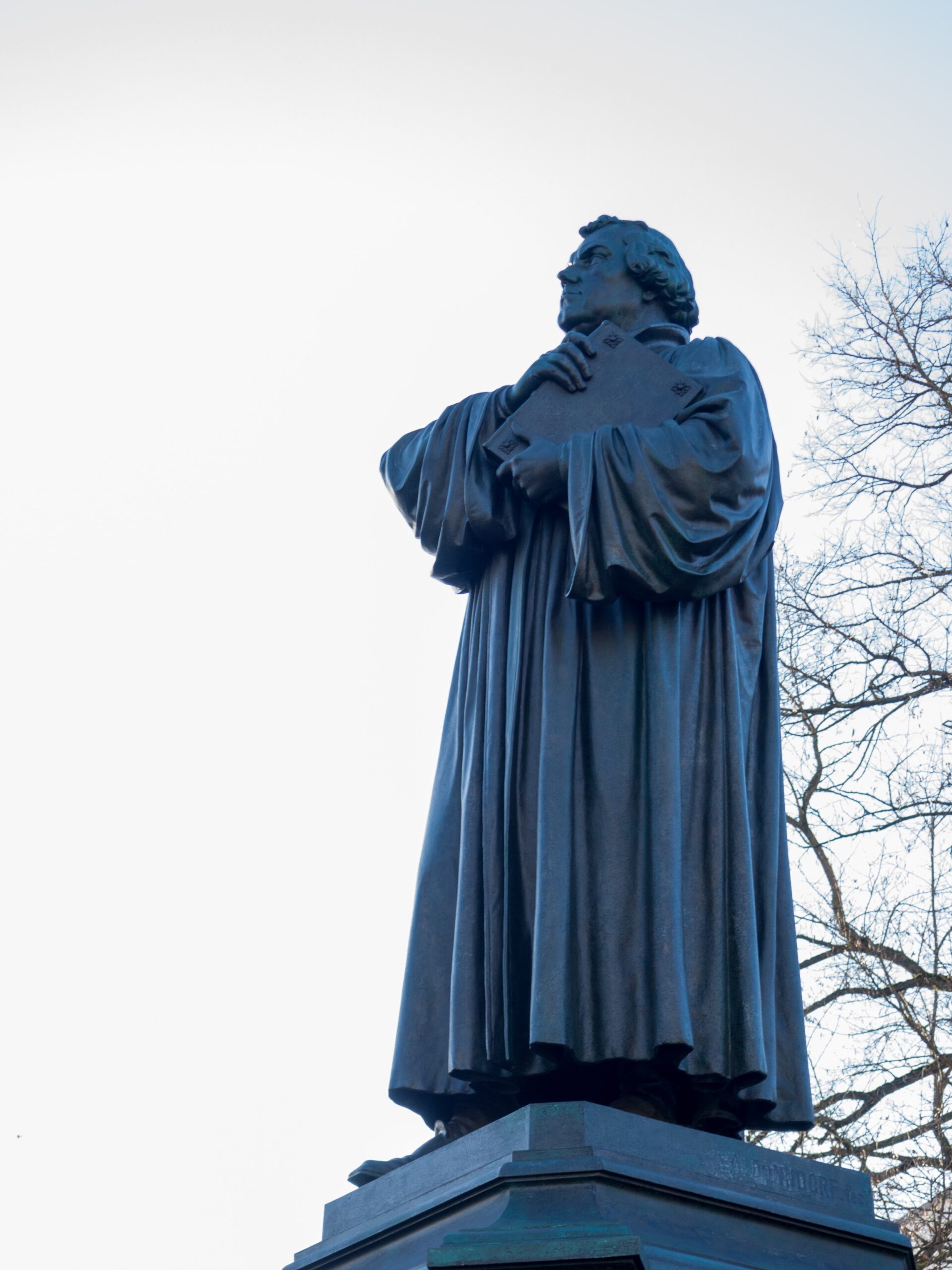
Wasn’t this just a bunch of word games? Over time, including reading, conversations with other believers, and listening to pastors and scholars, I began to realize that everyone justified the creed of sola fide by finding loopholes. They affirmed that faith and works go together, but since the creed says “faith alone,” they simply defined faith in such a way that it included works as a byproduct.
After a while I asked myself, Why are we serving a slogan?
I am really grateful that I was a part of that wrong-headed conversation with my friend about faith and works, because it prompted a lot of thought and turned up the heat on my bubbling frustration with the Christian world as I knew it. And that frustration eventually led me to the ancient Orthodox Church. I didn’t look for it immediately, because I didn’t know it existed. But I think God used my many questions about faith and works to prepare me for the Church.
Early in my journey to Orthodoxy, I brought my many questions to an OCA priest. Believe me, I had nothing innovative to say. My questions were boilerplate—the things that every well-trained Protestant struggles with. (I go into a lot of these things in detail in my series, “Stumbling Stones on the Orthodox Road.”)
I asked Fr. John about the role of works in salvation, because after listening and reading, it seemed to me that the Orthodox Church was teaching the dreaded salvation-by-works. I don’t remember my exact words to him. But I will never forget his exasperated response: “But, it’s all by grace!” He meant that any faith we have is a gift from God, and any good thing we do only occurs because God’s grace enables us.
Edited Memory Verses
Now let’s connect a popular memory verse with this faith-and-works conundrum. The one that really bugged me for years was Ephesians 2:8-9:
For by grace you have been saved through faith, and that not of yourselves; it is the gift of God, not of works, lest anyone should boast.
That is a beautiful passage, and I’ve always loved it. I was taught that the crucial lesson from this sentence is that salvation is a gift, and it cannot be earned by our works. The problem is, the next verse—verse 10—was almost always left out. I even discussed this problem with a fellow parent from my younger children’s Christian school. He grew up in the Church of Christ, Non-instrumental (yes, that’s a thing) and, even though he attended a small Bible college, he had never heard the word eucharist. But he too was concerned by the absence of verse 10.
Let’s look at all three verses, Ephesians 2:8-10:
8 For by grace you have been saved through faith, and that not of yourselves; it is the gift of God, 9 not of works, lest anyone should boast. 10 For we are His workmanship, created in Christ Jesus for good works, which God prepared beforehand that we should walk in them.
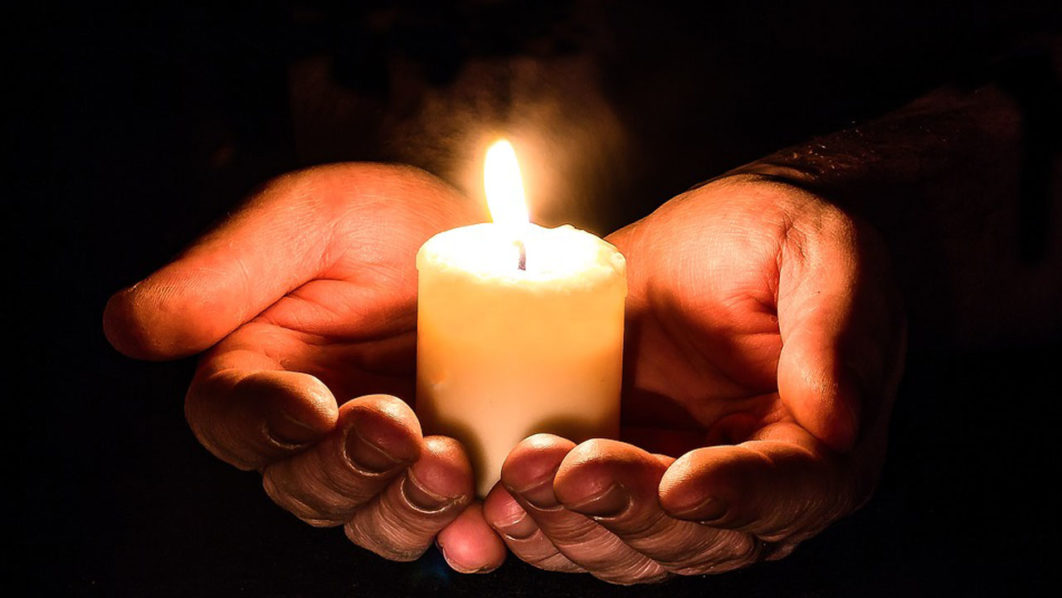
Hmph. Created for good works. Those words are straight from the pen of St. Paul, adding some important balance about the role of works in our lives. But it also muddies the point about salvation by faith alone—sola fide. I’m pretty sure this is the reason that verse 10 is ignored in the various Scripture memory programs.
Here’s what those Protestant study bibles have to say about this passage. The Reformation Study Bible comments only on verse 9, the “not of works” part:
Only faith, not works, can bring us acceptance with God. But good works are the vital consequence and evidence of life with God. … God chose us to make us holy sons and daughters, and He has fashioned us to be new bearers of His image, designed for the kind of life that conforms to God’s character.
The Ryrie Study Bible comments only on verse 8:
Salvation is by grace . . . through faith. Faith involves knowledge of the gospel (Rom. 10:14), acknowledgment of the truth of its message, and personal reception of the Savior (John 1:12). Works cannot save, but good works always accompany salvation (v. 10; James 2:17).
The note from the Orthodox Study Bible applies to all three verses, 8-10, and it appears to say the same thing as those study Bibles:
How can one get from the one kingdom to the other (vv. 1-7)? By the unity of grace, faith, and works (v. 9). Not that these are equal, for grace is uncreated and infinite, whereas our faith is limited and can grow; good works flow out of authentic faith. Works cannot earn us this great treasure—it is a pure gift—but those who receive this gift do good. We are not saved by good works, but for good works (v. 10).
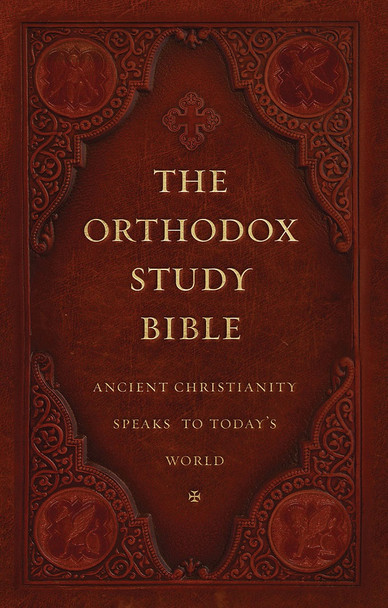
You’ll notice that the Orthodox Church absolutely agrees with Protestants that we cannot earn our salvation, and we must have faith in Christ. Yet the Church has never ascribed to sola fide. The Church believes in synergy—that we work in cooperation with God. Nowhere does the Bible teach that we are saved by faith alone—the word “alone” is something that Martin Luther added.
I really appreciate the article “Justification by Faith” in the Orthodox Study Bible. (If you have one, it’s on page 1529). Like all the OSB’s study articles, it is full of grace for the non-Orthodox. After pointing out the Reformers’ “justifiable concern” over “a prevailing understanding that salvation depended on human works of merit,” it notes:
This Reformation debate in the West raised the question for the Orthodox East: Why this new polarization of faith and works? It had been settled since the apostolic era that salvation was granted by the mercy of God to righteous men and women. Those baptized into Christ were called to believe in Him and do good works. An opposition of faith versus works was unprecedented in Orthodox thought.
The entire article is enlightening, and it points out that “faith is living, dynamic, continuous—never static or merely point-in-time. . . . True faith is not just a decision, it’s a way of life.” I wish I had known this in my conversation with my friend more than 20 years ago. The article continues:
Justification by faith, though not the major New Testament doctrine for Orthodox as it is for Protestants, poses no problem. But justification by faith alone brings up an objection. It contradicts Scripture, which says, “You see then that a man is justified by works, and not by faith only” (Jam 2:24). We are “justified by faith apart from the deeds of the law” (Rom 3:28), but nowhere does the Bible say we are justified by faith “alone.” On the contrary, “faith by itself, if it does not have works, is dead” (Jam 2:17).
I find it frustrating that the same people who look to Scripture alone as their authority ignore St. James’s clear teaching in Scripture. Martin Luther referred to the Book of James as an “epistle of straw,” because the apostle’s words didn’t support Luther’s new doctrinal formulation of “faith alone.” Let’s take a moment here to consider the irony.
Okay, done.
Setting aside the Book of James—even though we shouldn’t—let’s look at the Gospels and what Jesus had to say about our works—how we live our lives. These are verses that, because of my time in study, I could no longer set aside or explain away.
What Jesus Said about Our Works
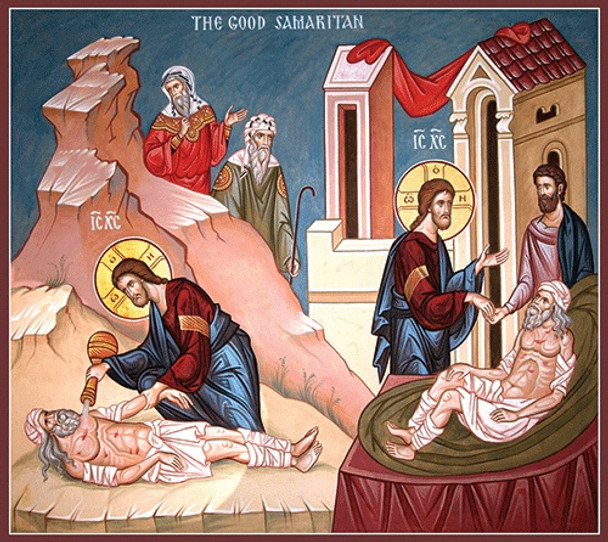
Matt. 7:21 “Not everyone who says to me, ‘Lord, Lord,’ shall enter the kingdom of heaven, but he who does the will of My Father in heaven.”
Matt 10:22 (also Mark 13:13) “But he who endures to the end will be saved.”
Matt. 16:27 “For the Son of Man will come in the glory of His Father with His angels, and then He will reward each according to His works.”
Luke 8:21 “My mother and my brothers are these who hear the word of God and do it.”
John 5:28-29 “For the hour is coming in which all who are in the graves will hear his voice and come forth–those who have done good, to the resurrection of life, and those who have done evil, to the resurrection of condemnation.”
And finally, Rev. 22:12 “I am coming quickly, and my reward is with me, to give to every person according to his work.”
I could go on. There are a lot more. The point is, many places in the Bible point to God judging us according to our works and that we are saved by grace, justified by faith. These are not separate topics. So, why are none of the above verses included in popular memory lists?
I think you can guess. These important scriptures do not serve the slogan. And when I was a faithful Protestant Christian, I didn’t think about the fact that the concept of “faith alone” is not biblical, as St. James wrote in verse 24 of chapter 2: “You see then that a man is justified by works, and not by faith only.”
The Orthodox Church has not come up with something new on the subject of faith and works; this is the historic Church’s teaching from apostolic times. And it’s important to remember that the Reformers were reacting to genuine problems in Roman Catholic practice, with its emphasis on human merit. But their reactive theology led to a pendulum swing in the opposite direction.
I will close with the final paragraph of the OSB article, “Justification by Faith”:
As Christians we are no longer under the demands of the Old Testament law (Rom 3:20), for Christ has fulfilled the law (Gal 2:25; 3:5,24). By God’s mercy we are brought into a new covenant relationship with Him. We who believe are granted entrance into His Kingdom by His grace. Through His mercy, we are justified by faith and empowered by God for good works or deeds of righteousness that bring glory to Him.
Amen.
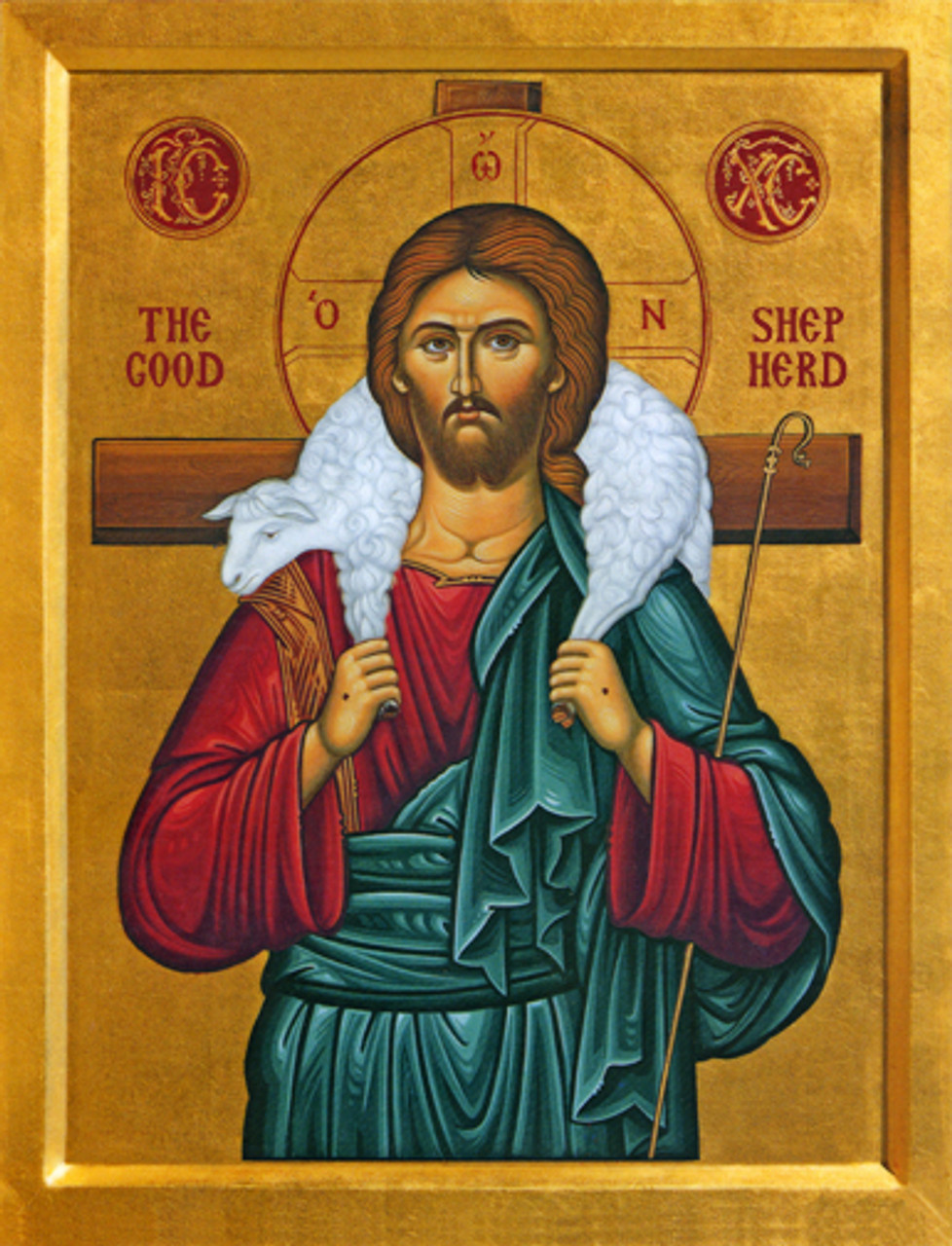
***
I’m a little worried that these episodes on scriptures I never memorized have had a negative edge to them. But I thought that perhaps others have struggled with some of the unbalanced or even erroneous theology from their childhood and among non-Orthodox friends and family. These issues can weigh us down and cause a lot of confusion. Remember, it’s always good to talk to your priest about these things and receive instruction, prayer, and maybe a course correction or two.
Next time we’ll focus on the positive. God continues to perform signs and wonders in His Church, so we’ll look at some recurring miracles that happen on feast days around the world—on the same day every year. I hope you can join me.
Thank you for another well-crafted post on this subject of Bible verses and their (mis) use. I appreciated your observations, and the way that you linked your points to an account of your journey to Orthodoxy.
Thank you!
Hi! I see your posts, and realize that Orthodox and I are ships passing in the night. Your devotion is a beauty in the eyes of God. What plunked the deepest chord for me was that tenth verse in Ephesians 2 – it is such a powerful summary of works *because of* faith. Faith without works is the mark of someone who never read that tenth verse.
Amen!
We have to see initial salvation: Baptism, or even holding out the possibility for initial faith/repentance in groups that have low views of Baptism, as the first movement/Exodus, “salvific” movement – but – then comes desert and demons and tests of loyalty/faith and being forced to realize “give us this day our daily bread” is a moment by moment dependence on God. No desert faithfulness: no Promised land. Original Sin created this false imagination of salvation, but Ancestral Sin does not. There’s a clear reason Christ starts in Egypt and then is in the Jordan and then the desert and demons and then is vindicated loyal in the Resurrection; it’s the pattern we are expected to follow as well. Exodus through water, granting of the means of Grace, desert, loyalty, vindication for the faithful, being remembered in His Kingdom.
We are truly on a lifelong journey of salvation.